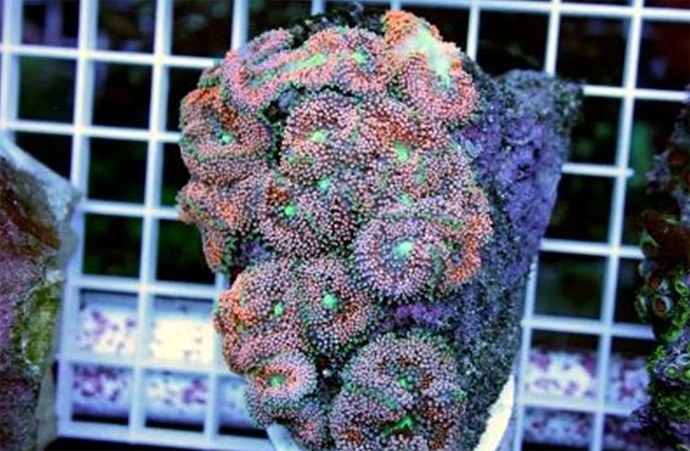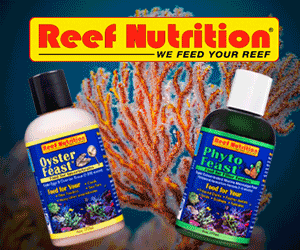Aristides Sanchez, owner of the Arecibo-based saltwater aquarium business, Wonders of the Reef Aquarium, has pled guilty to two counts of violating the US Lacey Act for the collection, smuggling, and sale of innumerous protected marine invertebrates.
Sadly, Advanced Aquarist has reported on too many people who have illegally trafficked protected species destined for aquariums. From the smuggling of giant clams and corals to live rock to , far too many people are comfortable dispensing with ethics and the law for the sake of profit. Those caught have faced very severe penalties (years in jail and up to $1,000,000 in fines). But for whatever justice is served, their damage – to the environment and to our hobby – is irreversible.
Play Your Part!
The illegal trade of aquarium livestock is not only ecologically damaging and ethically reprehensible, but it also puts a dark blot on our hobby. The US Department of Justice likes to make these types of convictions as public as possible for the purpose of deterring would-be illegal livestock traffickers. A side effect is that the public develops a negative perception of not only the convicted criminals but also the people in the hobby who are complicit by either acting as patrons … or those that simply remain silent.
If you are aware of any illegal activities involving the transport and sale of protected species within the United States, Advanced Aquarist strongly recommends you to contact the USFWS to report the violation. Reports may be registered anonymously, and the USFWS will only use the information you provide to pursue their new investigation. In some cases, rewards are offered. For readers outside the United States, contact your government’s authority in charge of wildlife.
The USDOJ issued the following statement:
Owner of Arecibo Aquarium Business Pleads Guilty to Two Federal Lacey Act Felonies for Illicit Trafficking of Protected Corals
Aristides Sanchez, a resident of Arecibo, Puerto Rico, pleaded guilty today to two felony violations of the federal Lacey Act for collecting, purchasing, falsely labeling, and shipping protected marine invertebrate species as part of an effort to subvert Puerto Rican law designed to protect corals and other reef species, the Department of Justice announced.
Sanchez was the owner of the Arecibo-based saltwater aquarium business, Wonders of the Reef Aquarium. A large part of the business was devoted to the sale of native Puerto Rican marine species that are popular in the saltwater aquarium trade. Sanchez sent live specimens to customers in the mainland United States and foreign countries by commercial courier services. One of the most popular items that Sanchez sent off-island was an organism from the genus Ricordea. These animals are known as “rics,” “polyps,” or “mushrooms” in the aquarium industry. Members of the genus form part of the reef structure and spend their adult lives fastened in place to the reef. These animals are colorful in natural light, but what makes them particularly interesting to aquarium owners is that they “glow” under the UV lights that are typically used in high-end saltwater aquariums.

“Coral reefs surrounding the island of Puerto Rico are some of the most valued and fragile natural resources in the region,” said Acting Assistant Attorney General Jeffrey H. Wood of the Justice Department’s Environment and Natural Resources Division. “The Division will continue to work with its enforcement partners to prosecute those who illegally harm the marine environment for commercial gain.”
“We will continue to prosecute those who exploit our protected marine life for financial gain,” said U.S. Attorney Rosa Emilia Rodríguez-Vélez for the District of Puerto Rico. “We appreciate the support of U.S. Fish and Wildlife Service and the National Oceanic and Atmospheric Administration agents in this investigation.”
“This investigation, serves as a fine example of ongoing joint investigative efforts related to the entire span of the marine life trade,” said Resident Agent in Charge David Pharo of the U.S. Fish and Wildlife Service. “Whether responsibility lies as the initial harvester, wholesaler, retailer or a public aquarium, the USFWS and partner agencies stand ready to investigate the matter and bring those responsible for poaching our nations sensitive marine life resources to justice.”
“Our partnerships are vital to helping ensure the protection and sustainability of living marine resources. This investigation is another great example of how successful partnerships lead to effective results,” said Deputy Director Logan Gregory of National Oceanic and Atmospheric Administration’s Office of Law Enforcement. “Investigating and bringing to justice those who exploit protected marine life is vital in helping to ensure a healthy ocean.”
It is illegal to harvest Ricordea, zoanthids, and anemones in Puerto Rico if the specimens are going to be sent off-island or otherwise sold commercially, nor is there a permit available to do so. Sanchez personally collected some of the Ricordea and other reef creatures that he sold off-island. On multiple occasions, he would accompany another person and they would snorkel from the shoreline in search of Ricordea. Because Ricordea are attached to the reef substrate, Sanchez would utilize a chisel to break off the animals, and in doing so, take chunks of the reef with him. At other times, Sanchez would purchase the Ricordea from other sources, knowing or suspecting that the specimens had been harvested illegally.
In order to cover up the nature of his shipments and to avoid detection from governmental inspection authorities, Sanchez would falsely label each shipment. The false labeling was one of identification whereby Sanchez would refer to living marine organisms as “pet supplies,” “aquarium supplies,” “LED lights,” or similar inanimate objects on shipping labels and invoices. At times, he used a fake name to cover his actions.
From January 2013 to March 2016, Sanchez sent or caused to be sent at least 130 shipments of falsely labeled marine species that were illegally harvested in the waters of Puerto Rico. While there is some variation in the price of Ricordea depending on coloration, size, and other factors, the retail value of Ricordea shipped by Sanchez typically ranges from $25 to $50 per item. From on or about January 7, 2013, through on or about March 16, 2016, the retail value of the falsely labeled and/or unlawfully harvested marine invertebrates shipped personally by Sanchez, or on his behalf with his knowledge, was between $800,000 and $1,200,000.
Sanchez is scheduled to be sentenced on December 20, 2017.
This case was investigated as part of Operation Rock Bottom and Operation Borinquen Chisel by Special Agents of the U.S. Fish and Wildlife Service and the National Oceanic and Atmospheric Administration with support from the USFWS Inspectors. The case is being prosecuted by Christopher L. Hale of the Justice Department’s Environmental Crimes Section along with Assistant U.S. Attorney Carmen Marquez of the U.S. Attorney’s Office for the District of Puerto Rico.










0 Comments